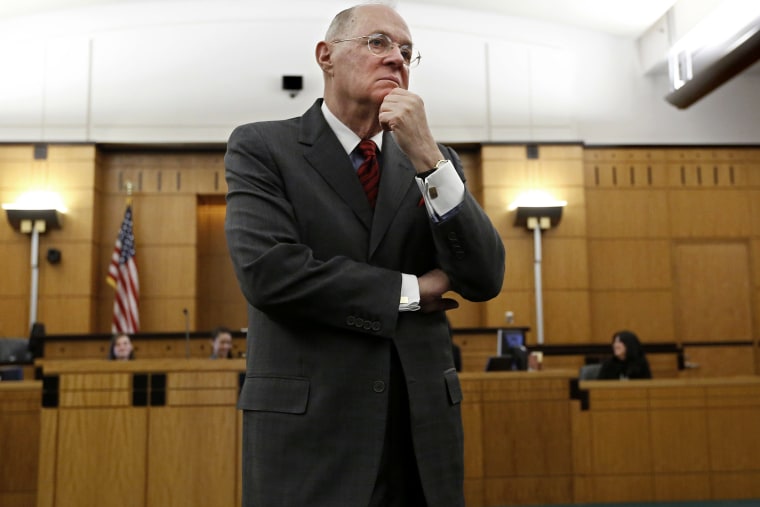Soon after Supreme Court Justice Antonin Scalia's death was announced, Senate Judiciary Committee Chairman Chuck Grassley (R-Iowa) said in a statement, "The fact of the matter is that it's been standard practice over the last 80 years to not confirm Supreme Court nominees during a presidential election year."
The fact of the matter is the chairman of the Senate Judiciary Committee should have done his homework before getting this wrong.
The "80 years" talking point spread like wildfire in Republican circles -- it was repeated by Ted Cruz and Marco Rubio during Saturday night's debate -- to the point that the GOP has convinced itself that at no point in the modern era has the Senate confirmed a Supreme Court justice in an election year.
About 14 justices were confirmed in election years, and perhaps the most pertinent example is Justice Anthony Kennedy. As the Washington Post's E.J. Dionne noted this morning:
A Senate controlled by Democrats confirmed President Reagan's nomination of Anthony Kennedy on a 97 to 0 vote in February 1988, which happened to be an election year.
Yes, in Reagan's eighth year, nine months before Election Day 1988, the Democratic-led Senate confirmed Kennedy with ease.
Chuck Grassley, who'd already been in the Senate for seven years at that point, delivered remarks on Feb. 13, 1988 -- exactly 28 years to the day before Scalia's passing -- urging the Senate to confirm Kennedy during that election year.
Grassley voted for Kennedy's nomination on the Senate floor soon after. So too did a young man by the name of Mitch McConnell, a Republican senator from Kentucky in his first term.
At the time, Ronald Reagan, stung by two failed nominees to the high court (Douglas Ginsburg and Robert Bork), said at the time that if Senate Democrats played election-year games by stalling on Kennedy's nomination in 1988, the "American people will know what's up."
And on this, he was correct.
But we know, of course, that Democrats didn't bother. There was a vacancy on the Supreme Court; the White House nominated a qualified and credible jurist; the Senate considered his qualifications; and he was confirmed in an election year without much of a fuss -- even though the Senate was controlled by Democrats and Reagan was a Republican president.
It's true that Kennedy was first nominated in late 1987, but the point is the right is now arguing that election-year confirmation votes have no modern precedent. Or as Grassley put it, "[I]t's been standard practice over the last 80 years to not confirm Supreme Court nominees during a presidential election year."
The Kennedy example proves otherwise.
If this were December 2016, Senate Republicans would be in a far better position to balk. But it's mid-February, and the Senate's to-do list for the next several months is quite thin. History isn't on their side -- and neither is the calendar.
